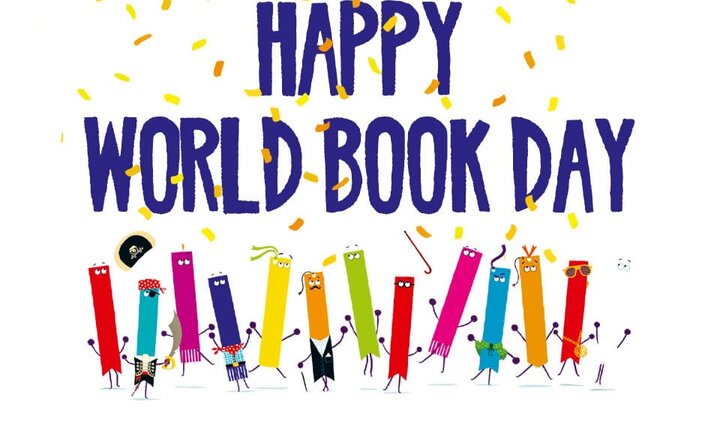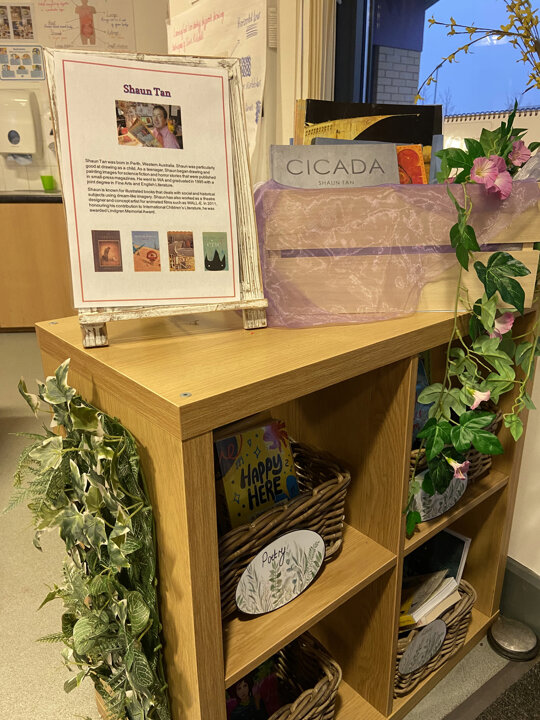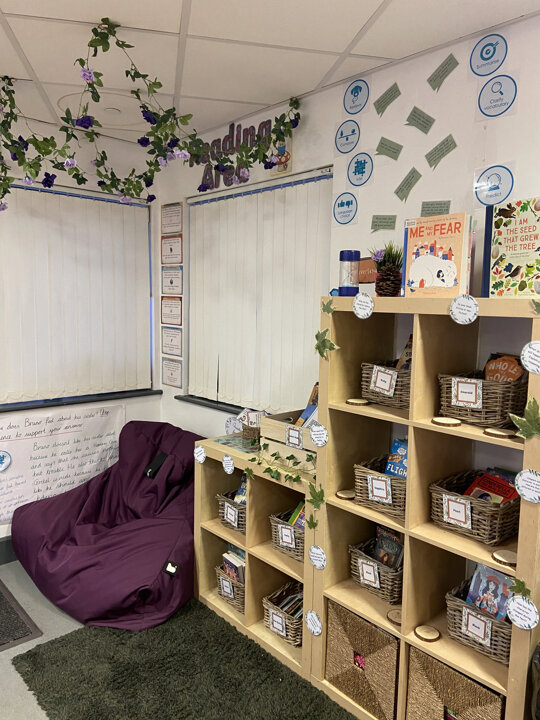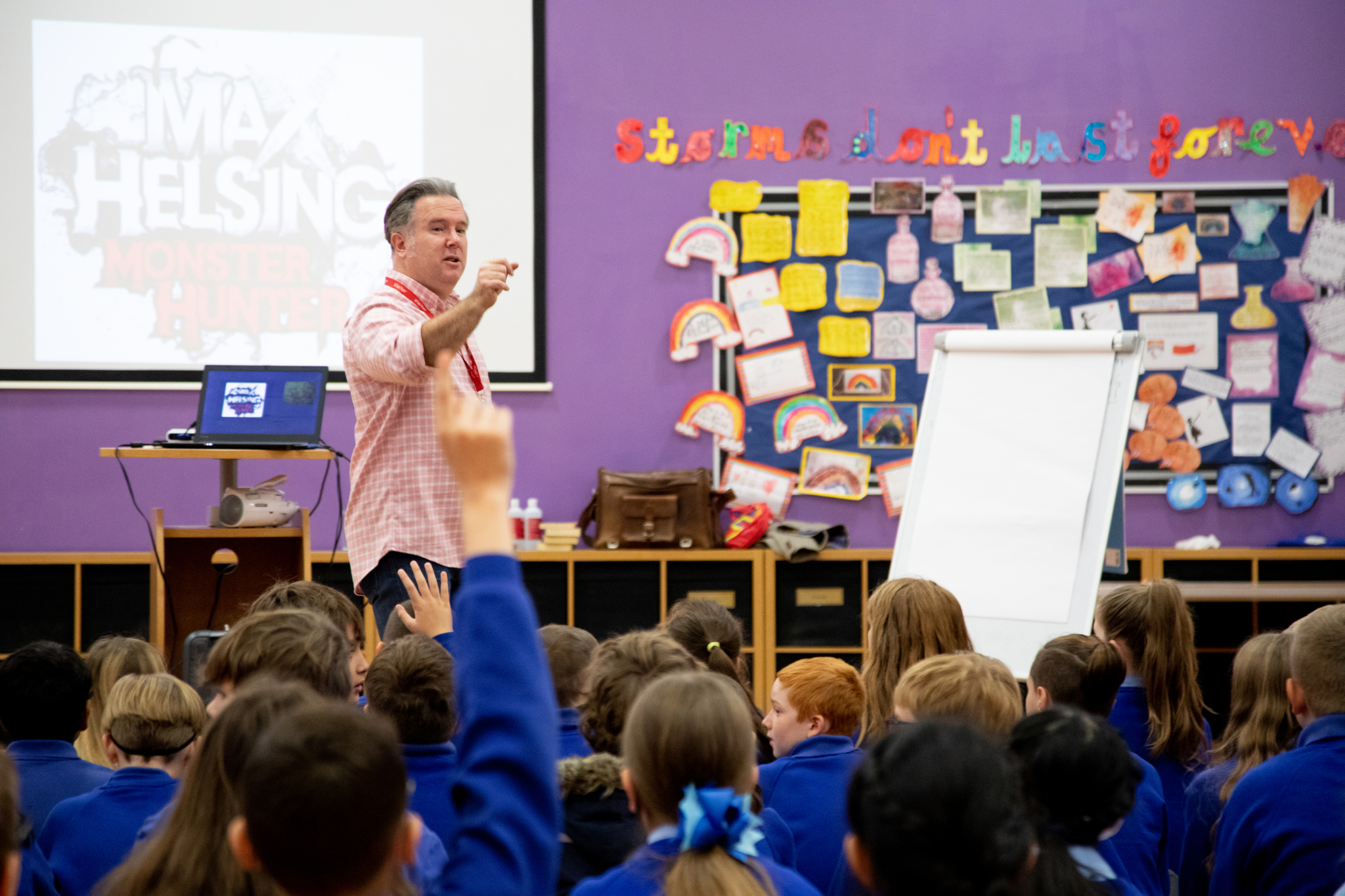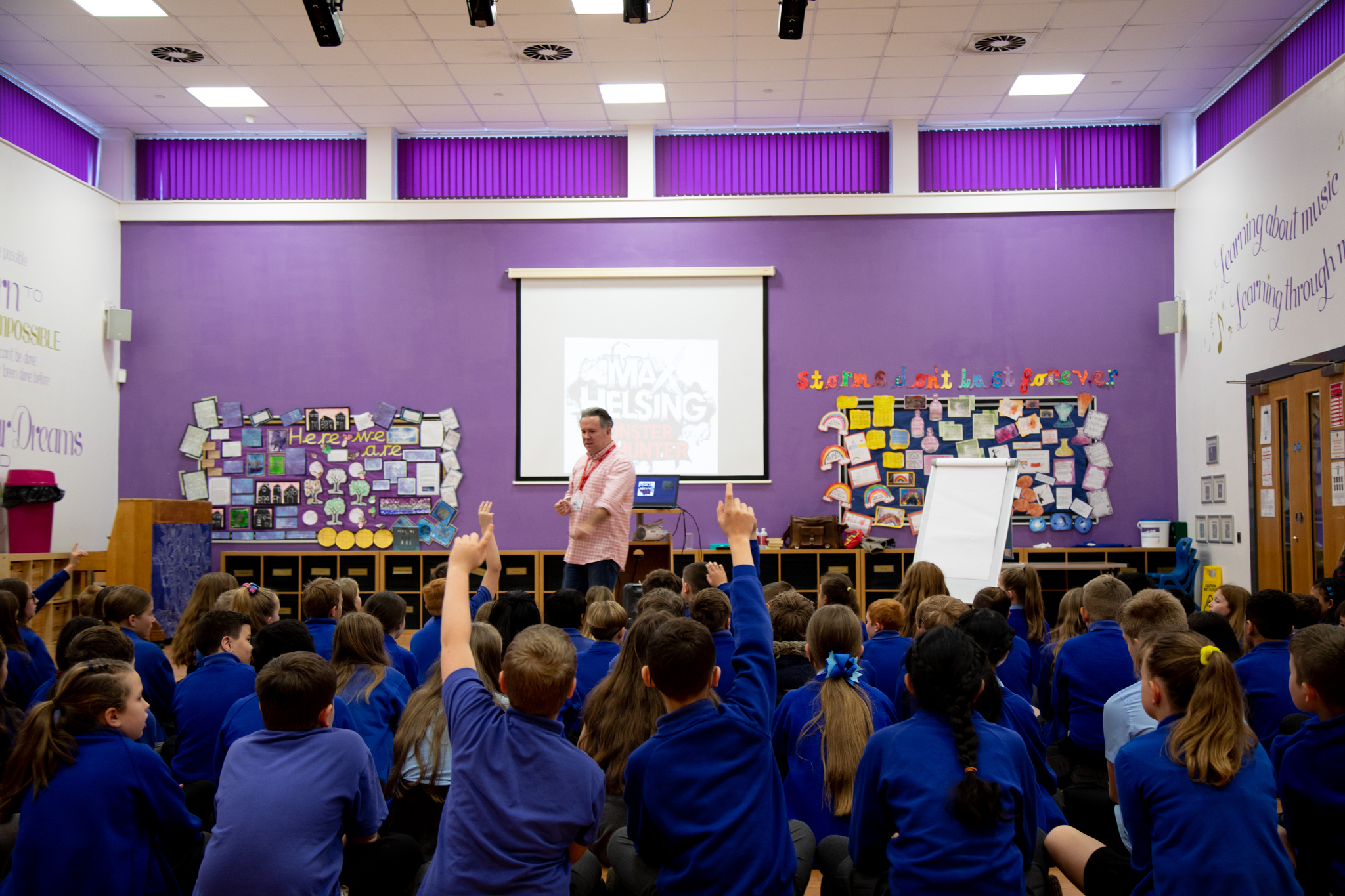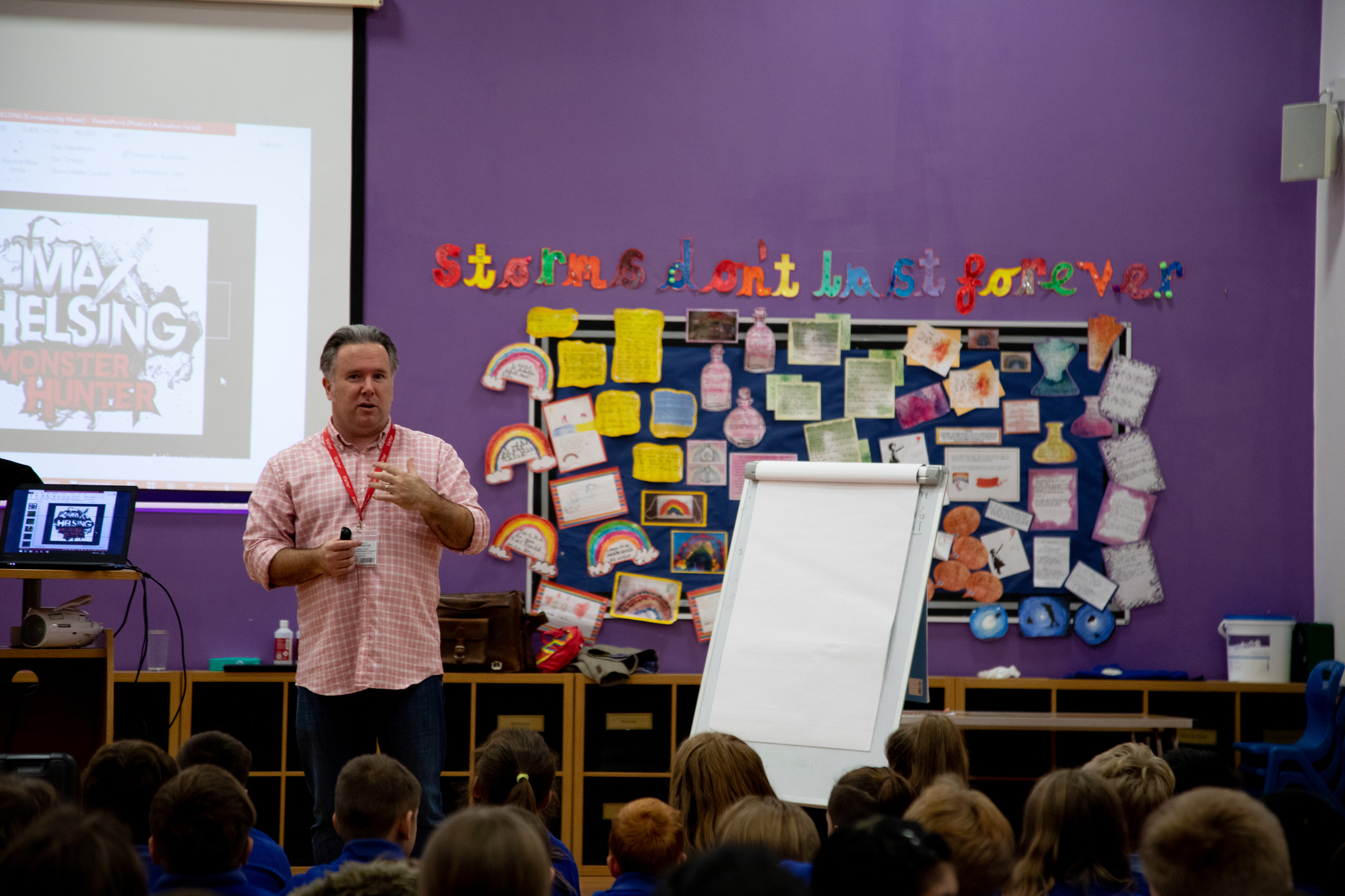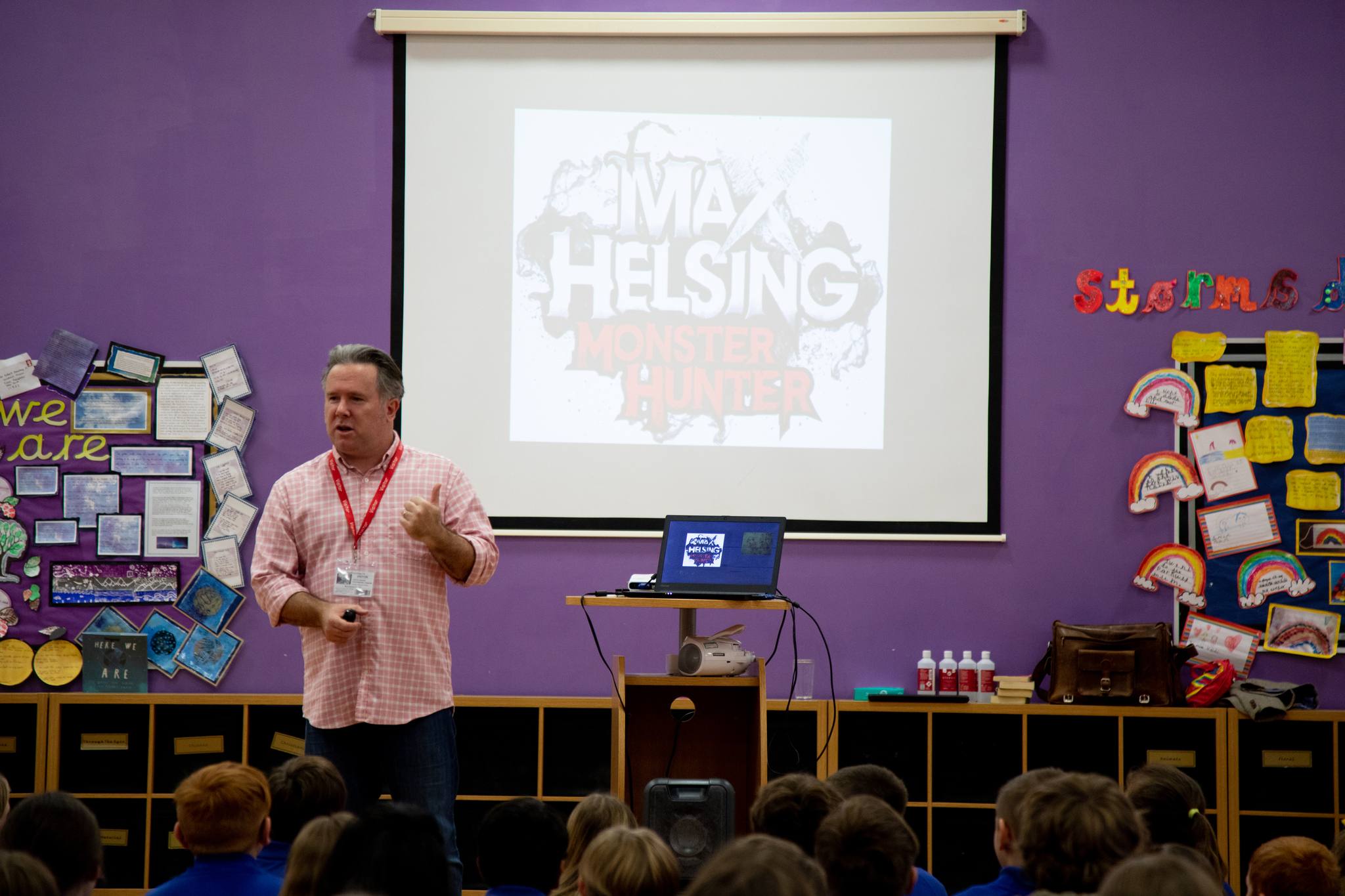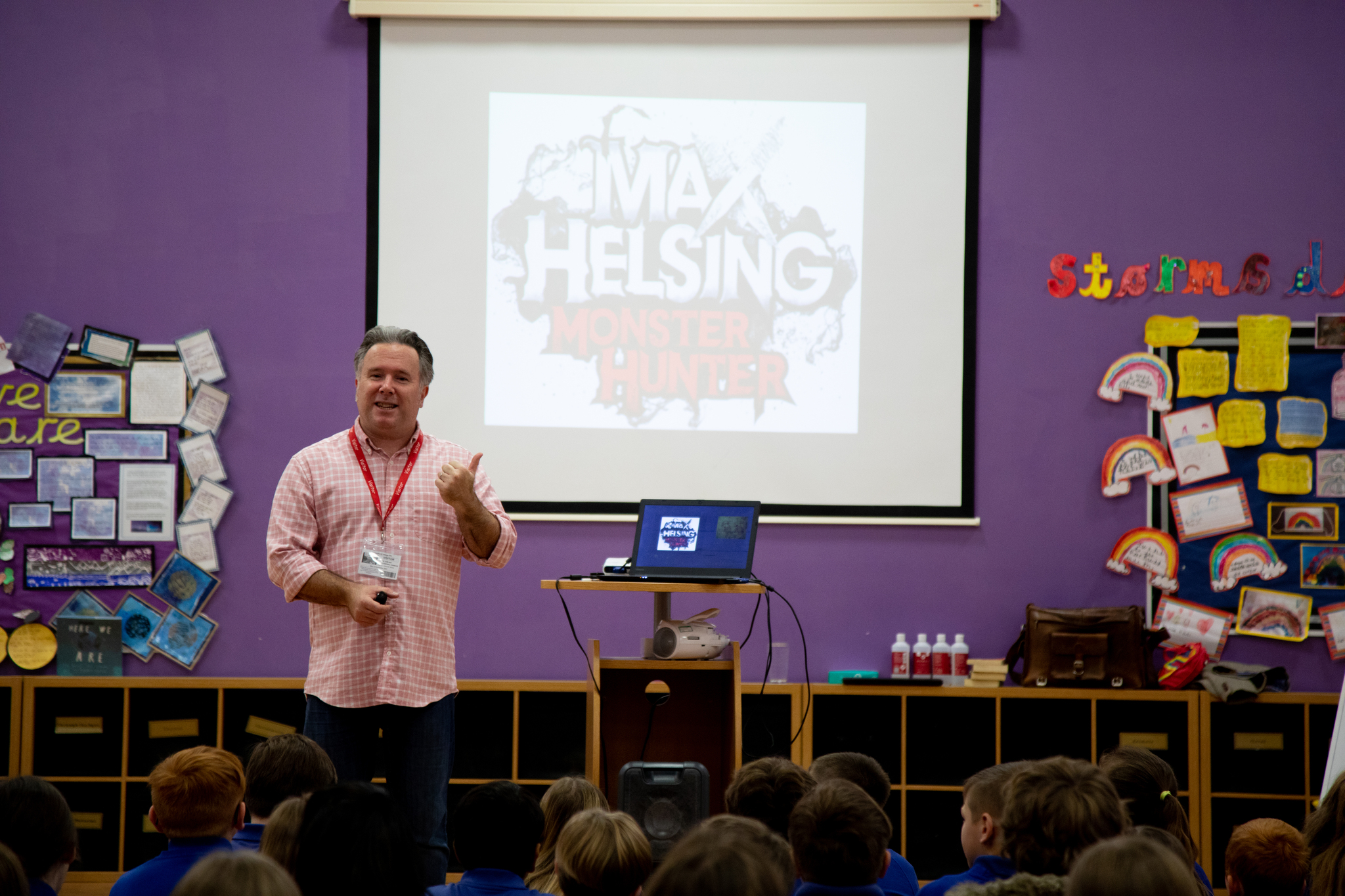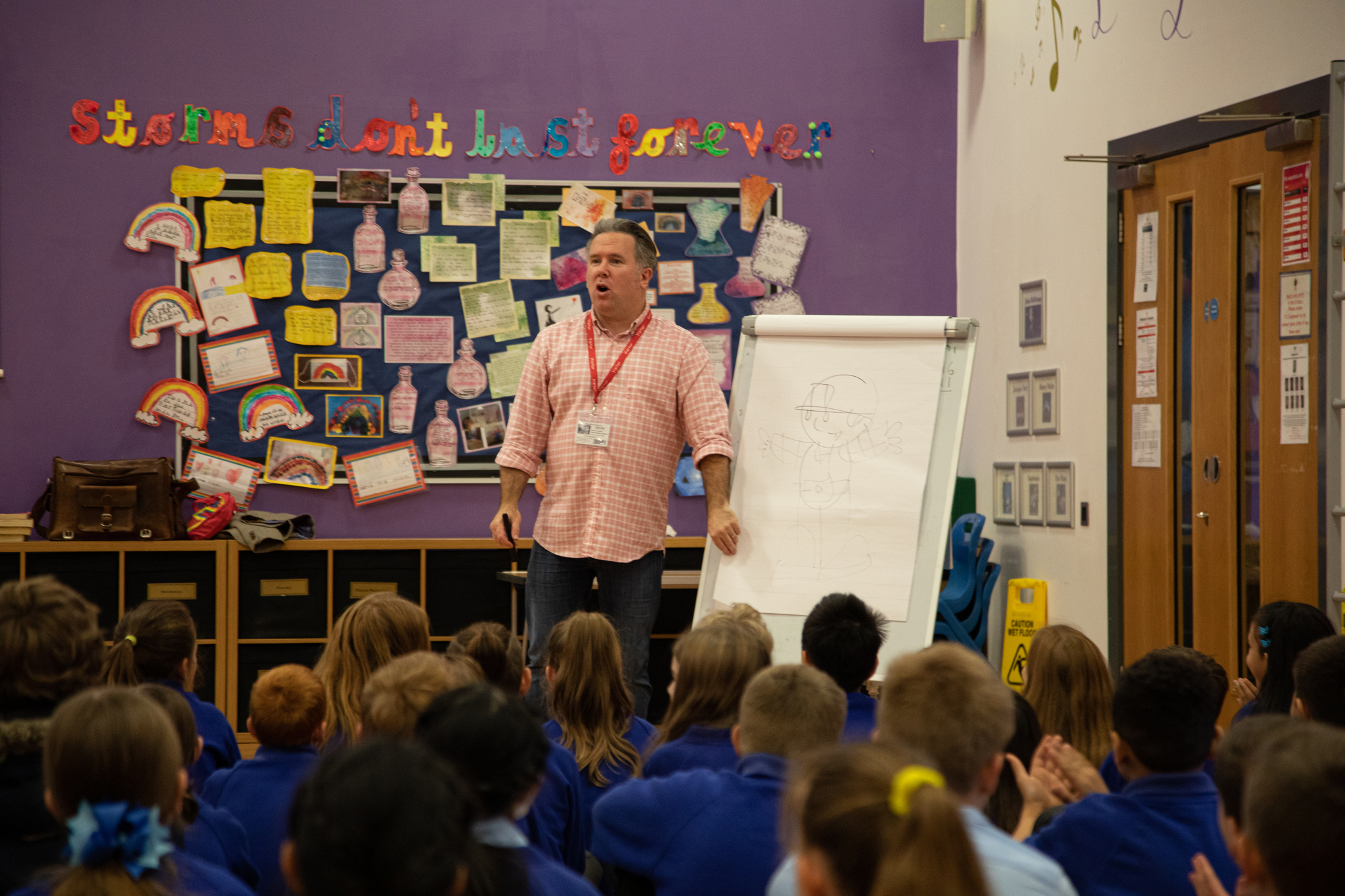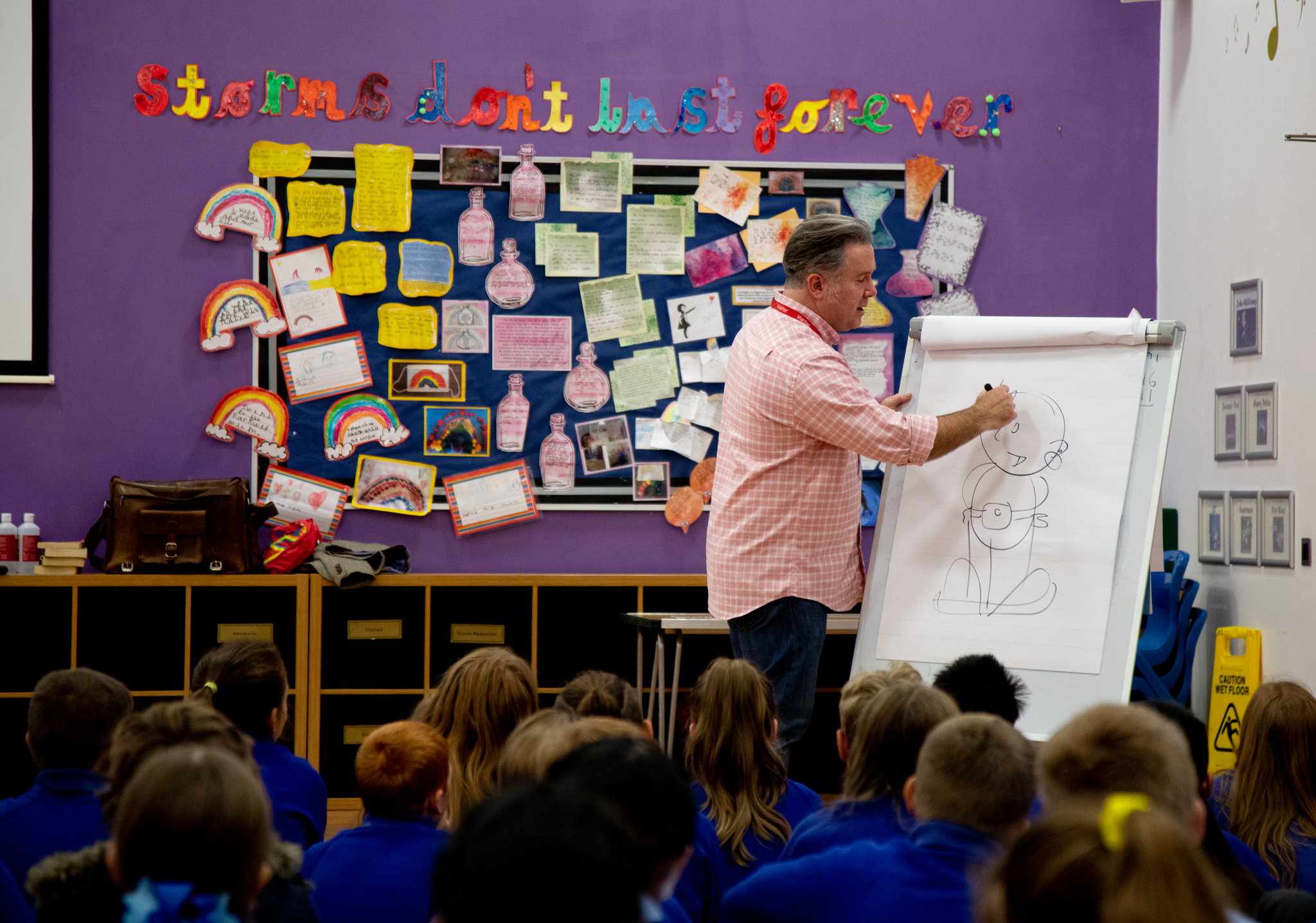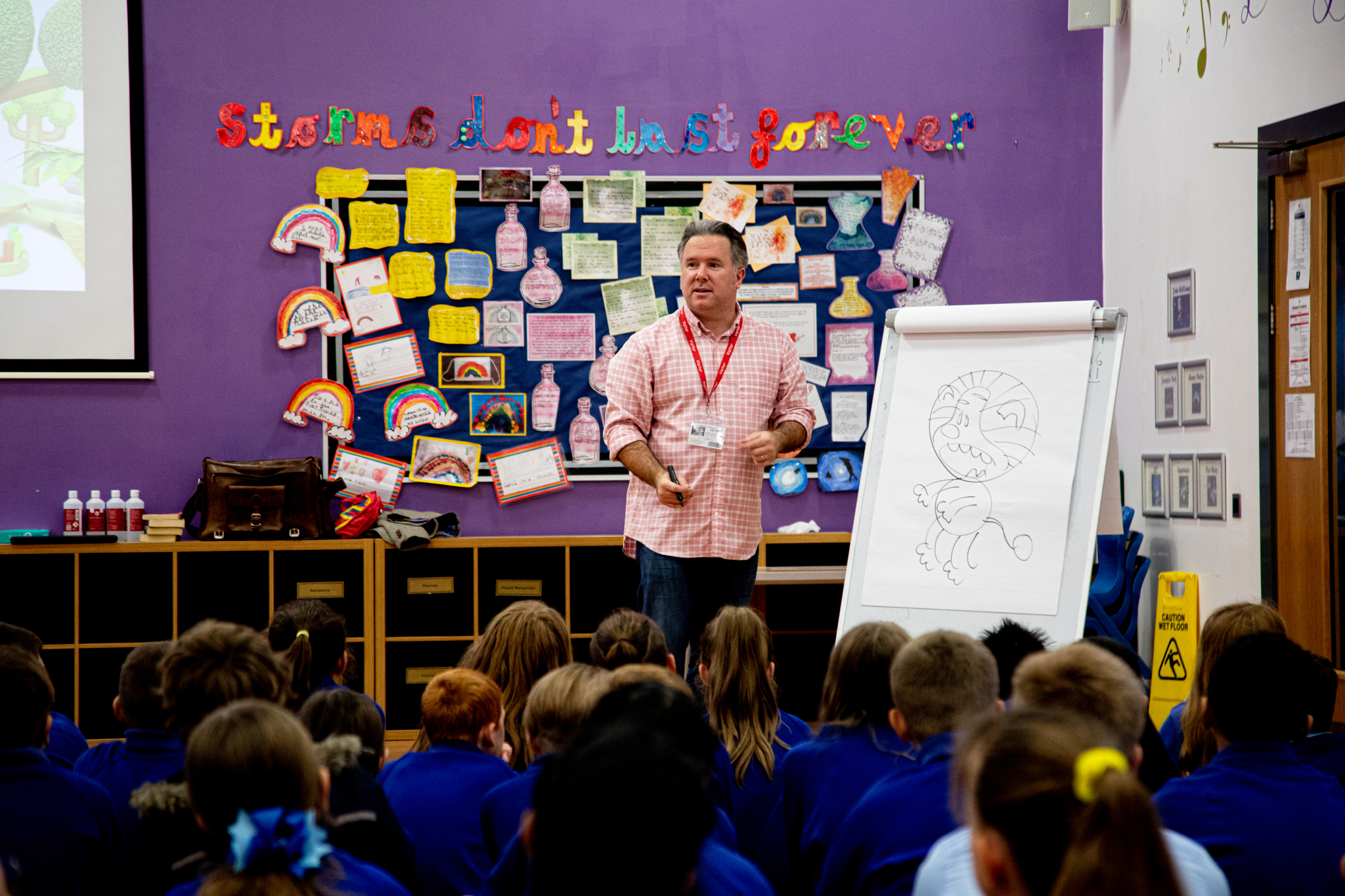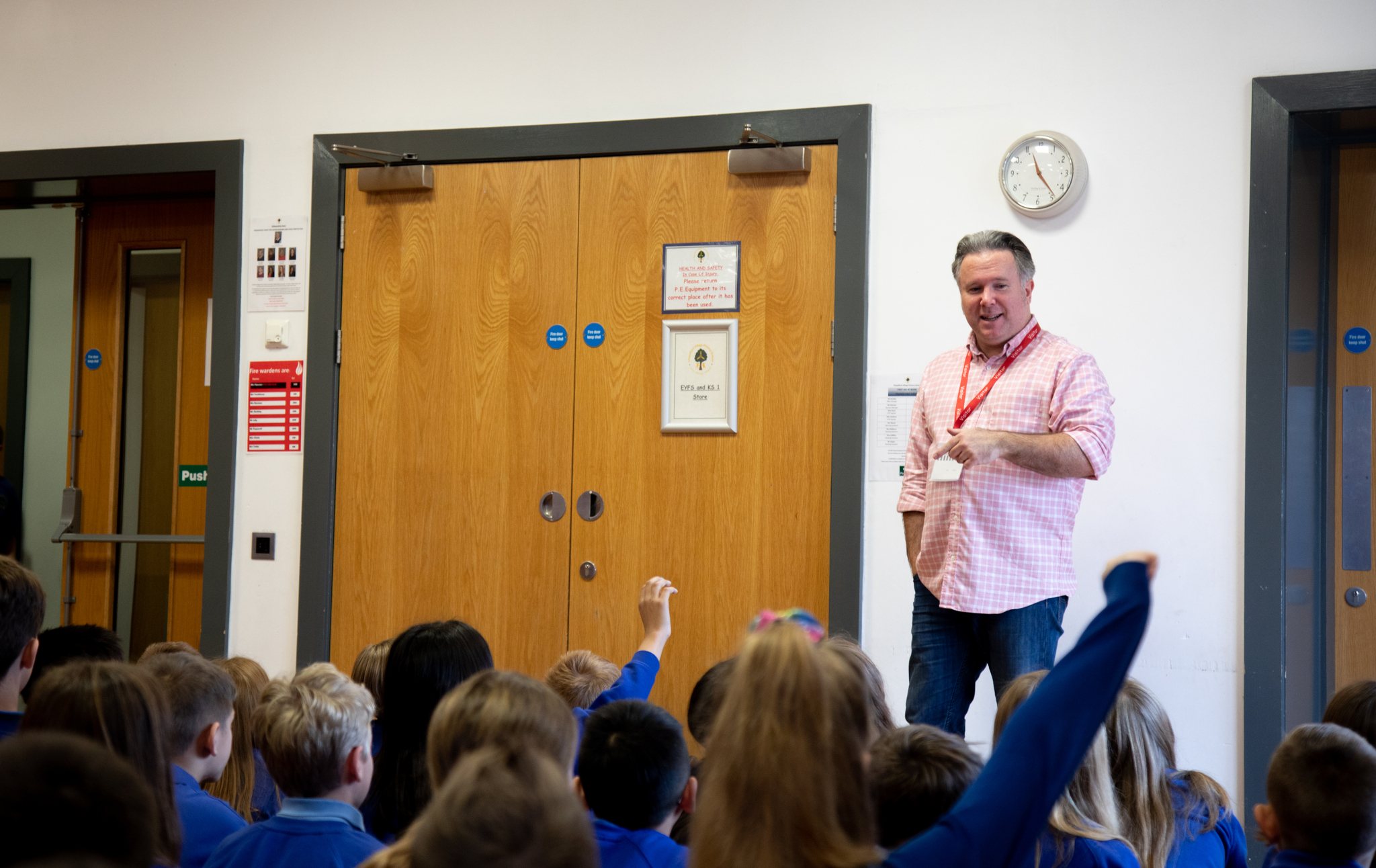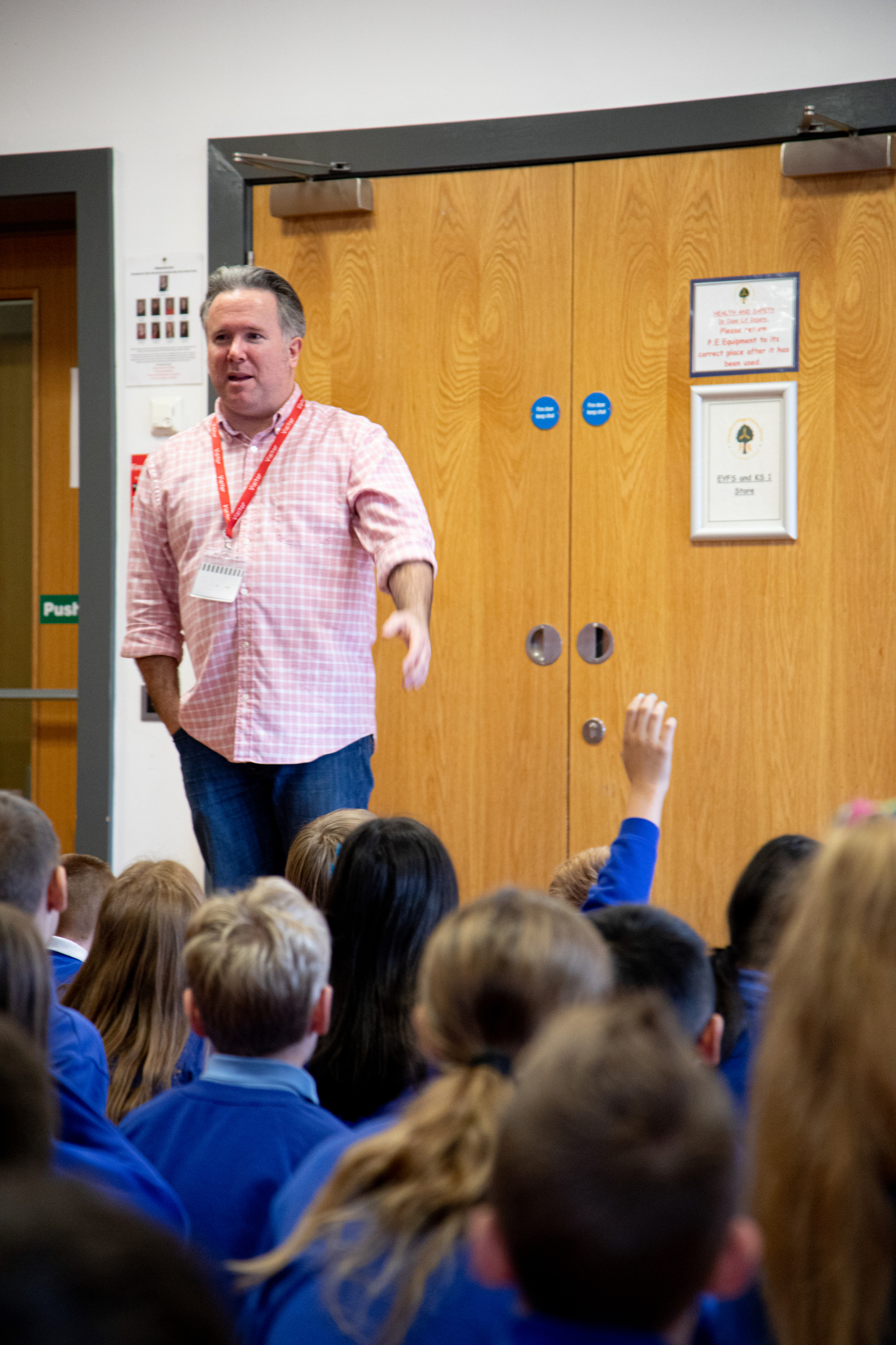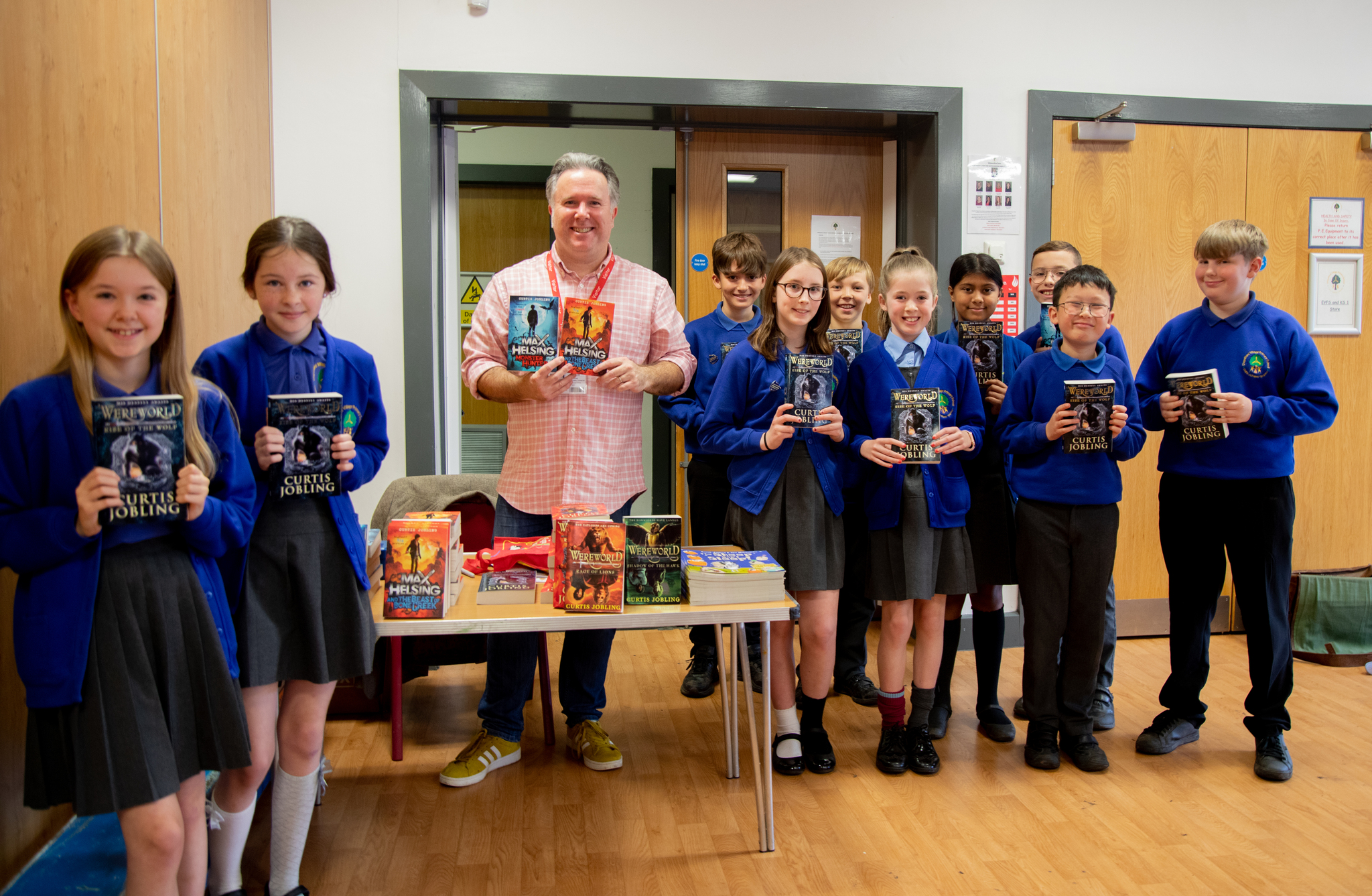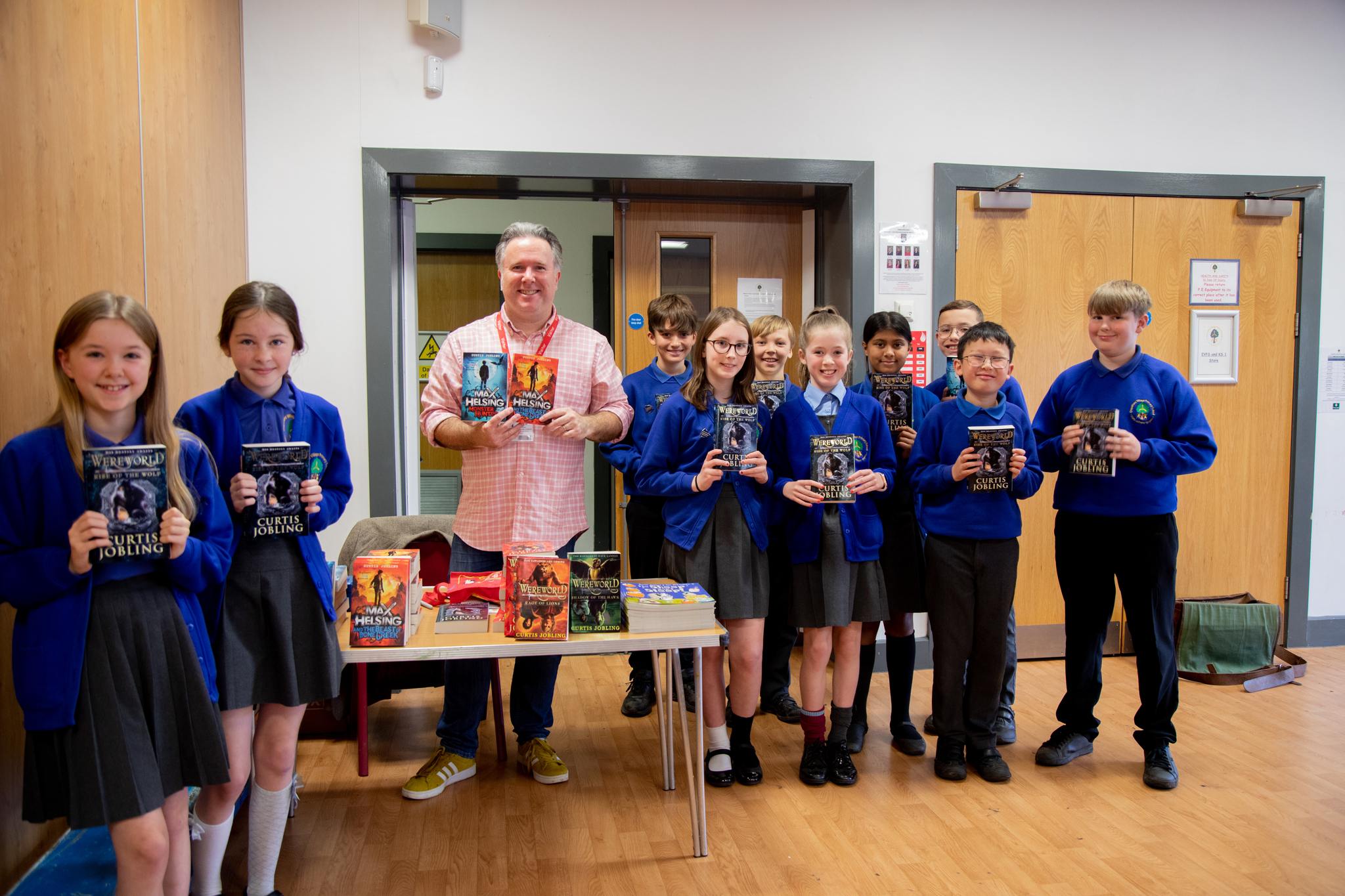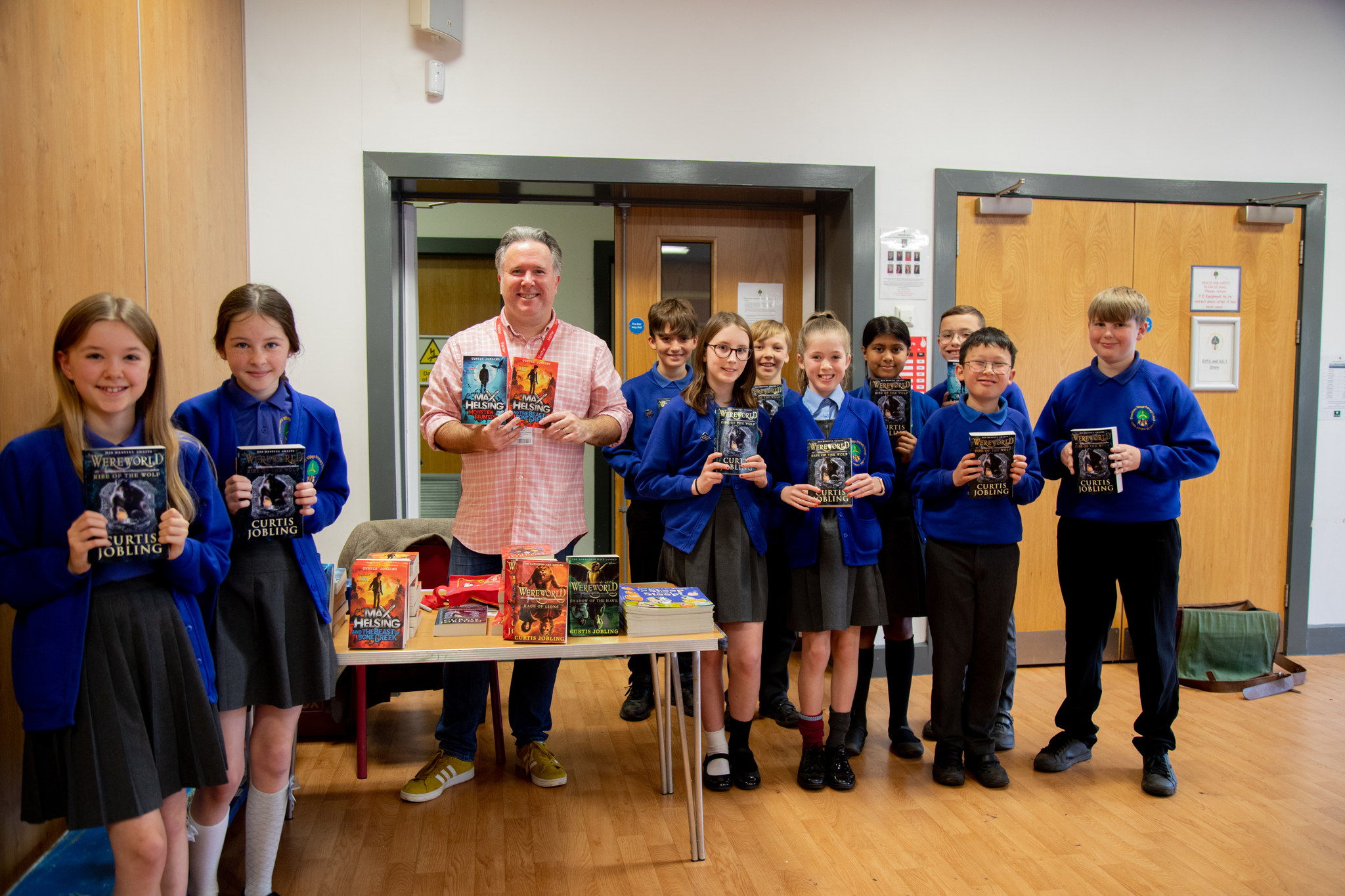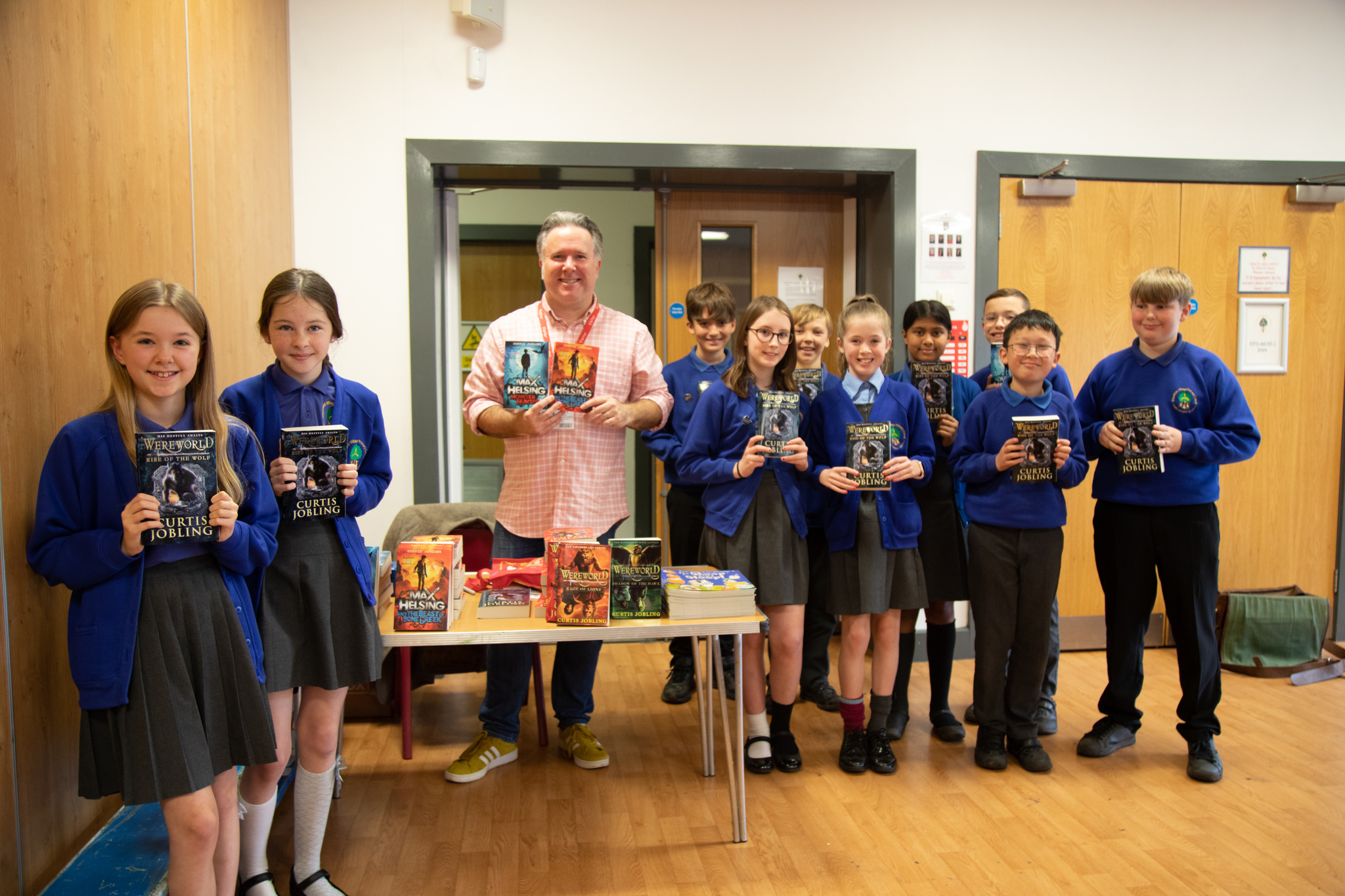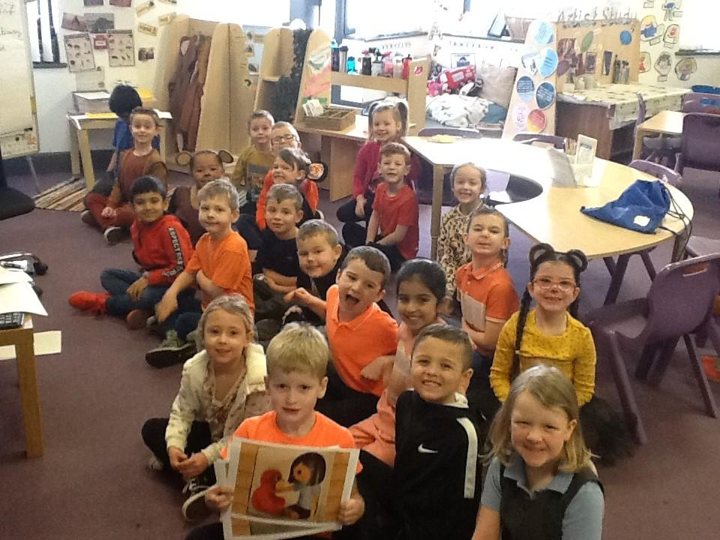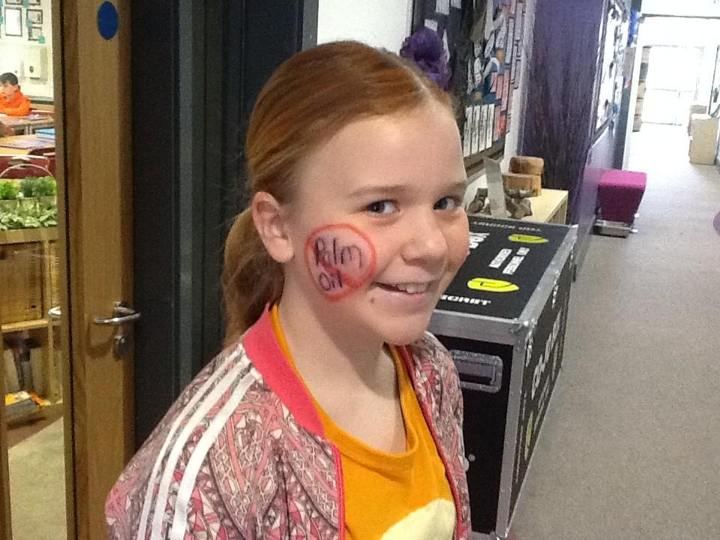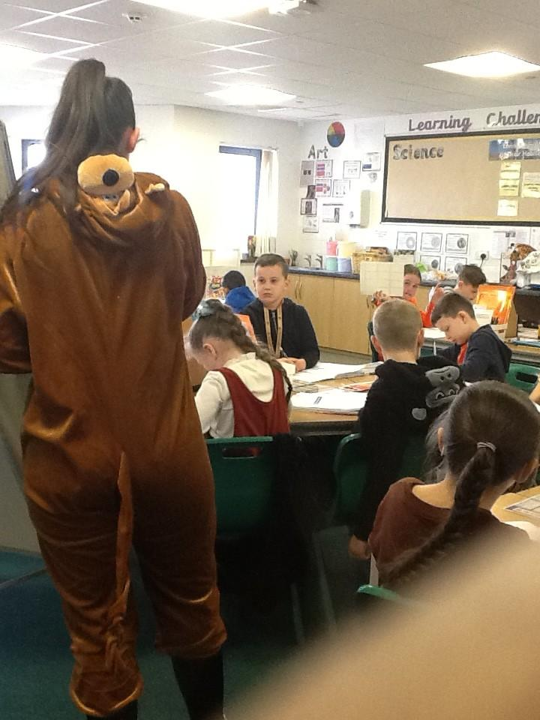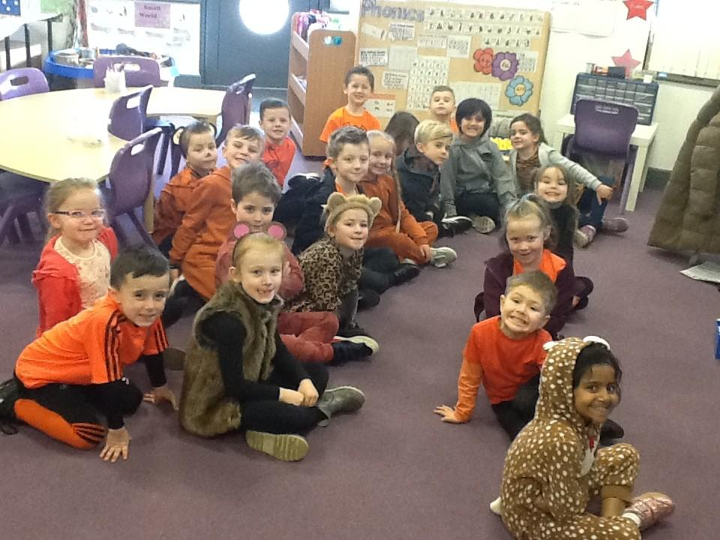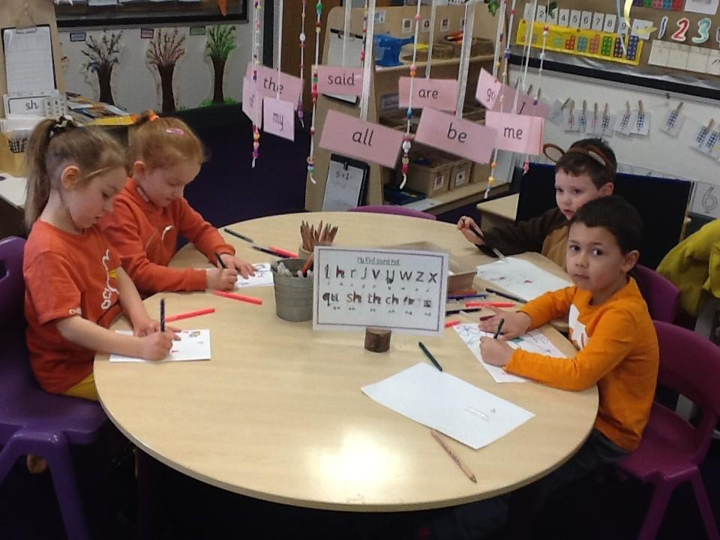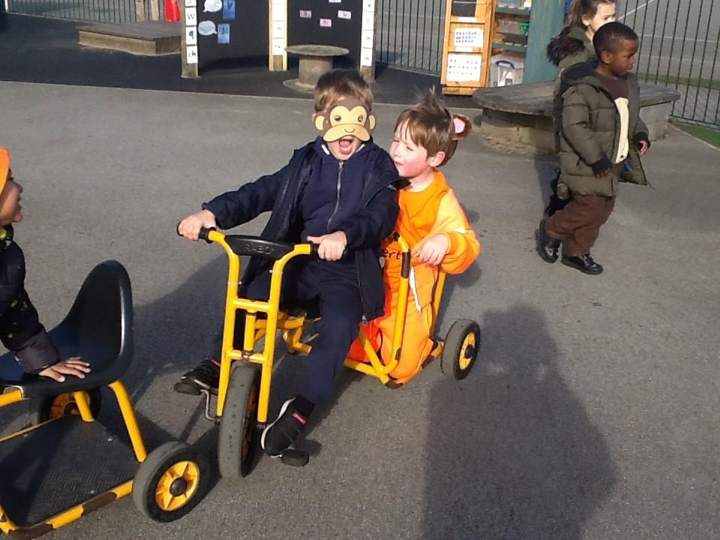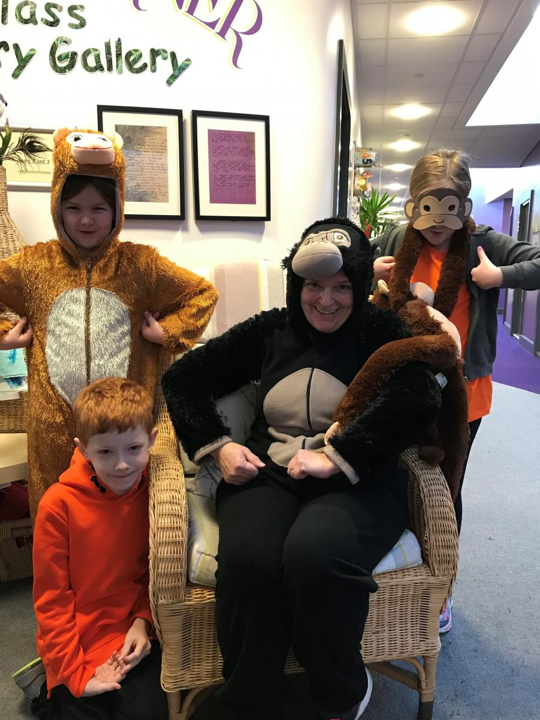Reading at CVPS
At Chapelford, we strive to develop a lifelong love of reading in every child. Our reading curriculum and environment are designed to inspire, challenge and support all learners.
What we intend to do:
- Create inviting reading areas that encourage children to read for pleasure, with comfortable seating, displays celebrating authors and a wide variety of books.
- Provide each classroom with books matched to children’s reading abilities to ensure texts are both enjoyable and appropriately challenging.
- Celebrate a wide range of authors, including diverse voices, to inspire children and broaden their perspectives.
- Ensure reading texts reflect inclusion, diversity and different cultural experiences.
- Identify children who may need additional support early and provide targeted reads and interventions to help them progress.
- Offer a broad range of genres and text types, including fiction, non-fiction, poetry and accessible texts for developing readers.
- Celebrate authors every half term, with displays and book collections to inspire children to explore different writing styles.
- Help children understand that reading is a gateway to learning, achievement, and accessing new opportunities across all areas of life.
Through our reading curriculum, children at Chapelford will:
- Confidently choose and enjoy books that interest them, fostering a lifelong love of reading.
- Develop automaticity and fluency in reading across a wide range of texts.
- Build strong comprehension skills, enabling them to understand, interpret, and respond to texts critically.
- Experience a rich variety of genres, including fiction, non-fiction, poetry, and culturally diverse texts.
- Encounter inclusive and diverse authors, expanding their perspectives and understanding of the world.
- Participate in targeted support and additional reads if barriers to learning are identified.
- Engage with a reading-rich environment that inspires curiosity, imagination, and confidence.
- Understand the importance of reading as a gateway to learning, achievement, and opportunities across the curriculum.
- Leave Chapelford as competent, fluent, and confident readers, with a lifelong love of reading.
Implementation
At Chapelford, we have a clear, embedded methodology for teaching reading that ensures children develop automaticity, fluency, and comprehension from the earliest stages. Our approach is carefully sequenced to build skills progressively across the school.
Key features include:
- A Solid Phonics Foundation: Children begin with Read Write Inc phonics in the foundational stages to develop early decoding and fluency.
- Progressive Reading Skills: As children progress, they develop more complex reading skills that support comprehension, inference, and analysis.
- Sequenced Curriculum: Reading skills are planned across the year, per half term, ensuring coverage of different genres and text types.
- Guided Reading Sessions: Teachers introduce new reading skills in whole-class guided reading sessions at the start of the week.
- Differentiated Learning: Skills are then adapted for individual ability groups, with multiple opportunities to practise and embed learning.
- Early Identification and Additional Support: Barriers to learning are identified early, with targeted interventions and additional reading for children who need extra support.
- Wide Range of Authors and Genres: Children access texts by diverse authors and from a variety of genres, including fiction, non-fiction, poetry, and texts celebrating inclusion and diversity.
- Reading for Pleasure: Classrooms and reading areas provide stimulating, accessible books to inspire a lifelong love of reading.
- Reading as a Gateway: Children are supported to understand that reading is a gateway to achieving, learning, and exploring the world.
- Fluent and Confident Readers: The ultimate aim is for all children to leave Chapelford as competent, fluent, and confident readers, ready to succeed across the curriculum and beyond.
- Rading Reward Scheme: Children are motivated and celebrated for their reading achievements through a structured reward scheme, encouraging regular engagement, reading at home and progress.
Reading at Chapelford
In our reading learning at Chapelford, we:
- Use subject-specific terminology accurately (e.g., inference, prediction, comprehension, genre, literary devices).
- Encourage exploratory learning and inquiry through reading and discussion of texts.
- Consolidate new and prior knowledge to build deeper understanding of texts, themes, and authors.
- Provide opportunities for children to ask questions, research ideas, and discuss interpretations.
- Offer meaningful reading experiences both in school and in real-world contexts.
- Support children in developing a rich understanding of a wide range of texts and genres, including fiction, non-fiction, poetry, and texts that celebrate diversity and inclusion.
- Teach, model, and encourage the correct use of reading vocabulary.
- Routinely use high-quality resources to support reading learning (e.g., texts, dictionaries, digital tools, and author studies).
- Ensure reading is relevant to children’s experiences while connecting to wider cultural, historical, and social contexts.
- Make links between previous and new learning to strengthen understanding and develop fluent, confident readers.
- Promote discussion and dialogue to reinforce comprehension skills and vocabulary.
- Use mixed-ability groupings to share knowledge, ideas, and strategies for understanding texts.
- Encourage children to understand that reading is a gateway to achieving, exploring, and learning in all areas of life.
Impact
We measure the impact of our reading curriculum through a variety of assessment strategies:
- Guided Reading and Independent Reading: Children read regularly, both in guided sessions and independently, developing fluency, comprehension and confidence.
- Targeted Assessment: Termly reading assessments track children’s ability to decode, infer, summarise, and analyse texts. Results are used to identify gaps and target support, including additional reads for children who need extra practice. We use a variety of targeted assessments to build an accurate picture of a child's reading ability, not just their word reading or comprehension.
- Monitoring Progress: Teachers review children’s reading to track retention, identify misconceptions and adapt teaching to individual needs.
- Early Identification: Children struggling with fluency or comprehension are identified early and supported with interventions and additional reading opportunities.
- Engagement and Motivation: Children are encouraged and rewarded through our reading reward scheme, which celebrates achievements and fosters a love of reading.
- Parental Involvement: Progress is shared with parents through termly reports, meetings, and opportunities to view children’s work, ensuring families are fully informed and engaged.
Through this approach, children become fluent, confident, and enthusiastic readers, equipped with the skills to think critically, communicate effectively, and enjoy lifelong reading.
Further Resources for Reading
- Free eBooks (ages 3‑11) at Oxford Owl — https://home.oxfordowl.co.uk/reading/free‑ebooks/ Oxford Owl for Home+1
- Book recommendations and discovery via BookTrust’s Bookfinder — https://www.booktrust.org.uk/book-recommendations/bookfinder/ BookTrust+1
- Free audiobooks for kids from Audible Stories — https://www.kingsley.harrow.sch.uk/free-audio-storybooks-from-audible/ kingsley.harrow
Read Write Inc at Chapelford Village Primary School
Children who read regularly or are read to regularly have the opportunity to open the doors to so many different worlds! More importantly, reading will give your child the tools to become independent life-long learners.
We can achieve this together through:
- Read Write Inc, a program to help to your child read at school
- Encouraging children to develop a love of books by reading to them daily, at home and at school
- Giving children access to a wide range of books at school and at home
At Chapelford Village Primary School we use Read Write Inc Phonics (RWI) to give your child the best possible start with their literacy. We have put together a guide to how the RWI programme works together with some useful links. Please take the time to read the information as it will provide invaluable information as to how you can help and support your child in reading.
What is Read Write Inc?
Read Write Inc (RWI) is a phonics complete literacy programme which helps all children learn to read fluently and at speed so they can focus on developing their skills in comprehension, vocabulary and spelling. The programme is designed for children aged 4-7. RWI was developed by Ruth Miskin and more information on this can be found at https://ruthmiskin.com/en/find-out-more/parents/.
How will RWI be taught?
Read write inc is taught daily at Chapelford Village Primary School. Children start the program in reception continue in year one and year two.
Reception
In Reception all children will learn how to read the sounds from set 1 in words and learn how those sounds can be written down.
Reading
The children:
- learn 44 sounds and the corresponding letters/letter groups using simple picture prompts – see below
- learn to read words using Fred talk and sound blending
- read from a range of storybooks and non-fictions books matched to their phonic knowledge
- work well with partners
- develop comprehension skills in stories by answering 'Find It' and 'Prove It' discussion questions
Writing
The children:
- learn to write and form the letters/letter groups which represent the 44 sounds with the help of fun phrases
- learn to write words by using Fred Talk
- learn to build sentences by practising sentences out loud before they write
Talking
The children
- they work in pairs so that they:
- answer every question
- practise every activity with their partner
- take turns in talking and reading to each other
- develop ambitious vocabulary
Year One & Year Two
Children follow the same format as Reception but will work on complex sounds in set 2 and set 3 and read books appropriate to their reading level. Daily sessions of RWI phonics last for one hour.
Five key principles underpin the teaching in all Read Write Inc. sessions:
Purpose – know the purpose of every activity and share it with the children, so they know the one thing they should be thinking about
Participation – ensure every child participates throughout the lesson. Partnership work is fundamental to learning
Praise – ensure children are praised for effort and learning, not ability
Pace – teach at an effective pace and devote every moment to teaching and learning
Passion – be passionate about teaching so children can be engaged emotionally.
Children will be taught how to read as follows:
Before you start to teach your child, practise saying the sounds below. These are the sounds we use to speak in English.
We use pure sounds (‘m’ not’ muh’,’s’ not ‘suh’, etc.) so that your child will be able to blend the sounds into words more easily.
At school we use a puppet called Fred who is an expert on sounding out words! we call it, ‘Fred Talk’. E.g. m-o-p, c-a-t, m-a-n, sh-o-p, b-l-a-ck.
The following video is an example of blending sounds with Fred. https://www.youtube.com/watch?v=dEzfpod5w_Q
The children are taught the sounds in 3 sets.
Set 1 Sounds are taught in the following order together with rhymes to help children form the letters correctly and instantly recognise sounds ready for blending.
Please do not use letter names at this early stage
Watch this clip to hear how to pronounce set 1 sounds correctly.
https://www.youtube.com/watch?v=TkXcabDUg7Q
Children will also use pictures for each sound to help recognise the sound and then form the shape of the sound.
The children are then taught Set 2 Sounds - the long vowels. When they are very confident with all of set 1 and 2 they are taught Set 3 Sounds.
Nonsense words (Alien words)
As well as learning to read and blend real words children will have plenty of opportunities to apply their sound recognition skills on reading ‘Nonsense words’. These words will also feature heavily in the Year One Phonics Screening check in the summer term.
Children will be introduced to ‘Ditty books’ when they successfully begin to read single words. The short vowels should be kept short and sharp:
Children use sound-blending (Fred Talk) to read short ditties. Within all the books children will have red and green words to learn to help them to become speedy readers. Red words are words that are not easily decodable and challenge words to extend children’s vocabulary. Green words are linked to the sounds they have been learning and are easily decodable.
What is the Year 1 phonics screening check?
The Year 1 phonics screening check is a short, light-touch assessment to confirm whether individual pupils have learnt phonic decoding to an appropriate standard.
It will identify the children who need extra help so they are given support by their school to improve their reading skills. They will then be able to retake the check so that schools can track pupils until they are able to decode.
Further information can be found on https://assets.publishing.service.gov.uk/government/uploads/system/uploads/attachment_data/file/194057/phonics_check_leaflet_2013_.pdf
To help at home:
Your child will start to bring books home when they are confident readers. Ensure you read with your child 5 times a week. It is also important for your child to listen to read and share stories together to promote a love and passion for learning. Please help them to read and give lots of praise! If you have any other questions about RWI, please see your class teacher.
Useful websites for Parents
Please find a list of websites that you may find useful in helping you and your child learn about phonics. Games and fun activity websites are also included.
https://www.ruthmiskin.com/en/find-out-more/parents/
PHONICS
Phonics


Reading at Home
Research evidence indicates that promoting the development of reading habits with parents makes a significant impact so we want to continue working with you and offering support and guidance when reading at home with your child. Therefore, we have included some great resources and ideas from the Education Endowment Foundation.
When reading with your child, it can be very easy to focus on the words themselves and ensuring that we turn the pages to get through the book. However, we can sometimes miss the opportunities for conversations that arise naturally as we read. Book talk is really important for successful learning. Now just isn’t the time to be too anxious about what children are reading. Reading instructions, recipes, and even old baby books, are all valuable. We often worry that about the level of perceived challenge of a book but please remember that sustained talk around picture books, especially for younger children, is certainly valuable reading.
Children should be encouraged to return to their favourite stories, given the likely emotional benefits during this tricky time. Indeed, in such uncertain times, children may gain comfort from reading a book they enjoyed as a very young child. Please borrow ideas from TRUST framework to open the door to lots of healthy discussion, and of course, a love of reading.
Reading Guidance
As you share a book, why don’t you use some of these questions to begin the conversation?
Take turns to make plans and predictions before reading: ‘I wonder if… what do you think?’ ‘You think… Oh, I thought…’
Recap to check ideas and understanding as your child is reading: ‘
So, you think that…’ ‘Did you expect…to happen?’ ‘Why do you think that happened?’
Use encouragement and praise to keep children engaged in reading: ‘What brilliant ideas…let’s see what happens.’ ‘You thought so carefully about... What might happen now?’
Share prior knowledge and past experiences that link to what is being read: ‘Have you learnt about…at school?’ ‘Do you remember when we watched…and found out about…’
Tune-in and listen to your child – be curious about their interests: ‘I didn’t know you knew so much about…’ ‘I love reading stories about...with you.’
Curtis Jobling - Author of Raa Raa the Noisy Lion, The Wereworld series and Max Helsing is the Patron of Reading for Omega Multi Academy Trust.
We are really excited to have Curtis visit school and work with our children to inspire the authors of the future!
Find our more about Curtis via the image below:
In November Curtis visited our Year 6's to talk about being an author and to provide some inspiration to some of our possible authors of the future!
Related News

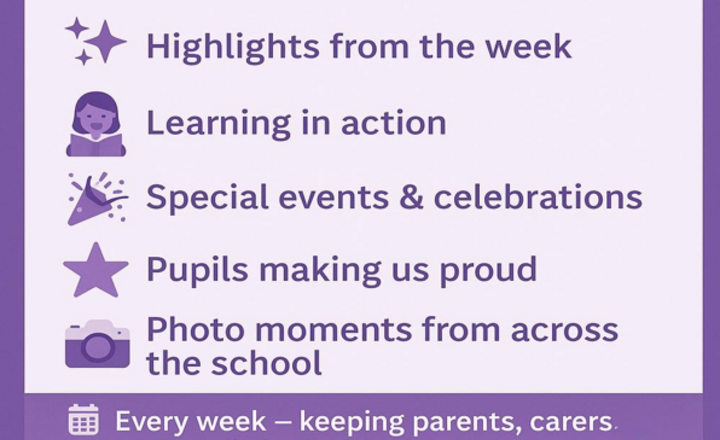
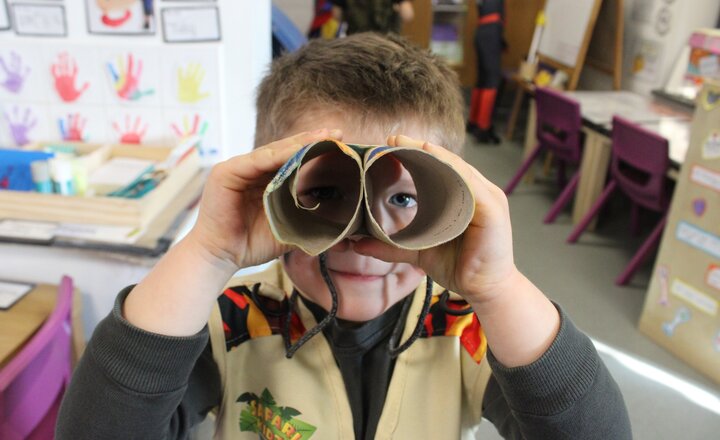
Related Events
